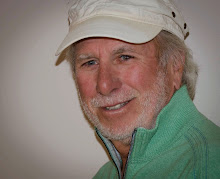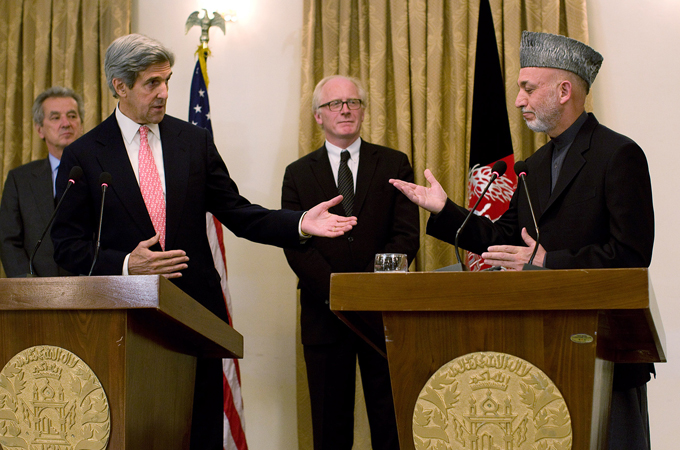Harper must get fired up to deal with fuel shortage
The Edmonton Journal
Lack of contingency plans for likely international oil crisis will leave Canada in the cold
By Gordon LaxerSmallpox is a scary disease. It kills a fifth of those infected, and scars and blinds many survivors. Canada has been smallpox free since 1962 and the world since 1977. But, Canada has a smallpox contingency plan. So does Britain. The chances of a smallpox outbreak are remote, but I am happy to pay taxes so Canada can employ people to fight its return. That's what governments are for.
Canada stands on guard for just about every other imaginable disaster too. Click onto Public Health Canada's "Get Prepared," and you find detailed advice and plans on a long list of emergencies. But there is one glaring omission. Canada has no plan to deal with an international oil shortage even though one is almost certain to hit soon.
Just think about Iran closing the strait of Hormuz after a U.S. attack - 40 per cent of ocean-bound oil shut in at one blow. Canadians, who face special conditions of long cold winters, would be immediately affected. Some could even freeze in the dark.
This country imports half its oil, and a growing portion comes from OPEC countries. We are as dependent on Middle East oil as the U.S., yet have no plan to direct domestic oil to Canadians. Canada is the only country in the 27-member International Energy Agency without strategic petroleum reserves.
Prime Minister Stephen Harper's reply to Peter Mansbridge in a Jan. 16 interview reveals why Canada has no oil plan. He doesn't believe in one. Mansbridge asked, "Does it not seem odd that we're moving oil out of Western Canada to either U.S. or new markets to Asia when a good chunk of Canada itself doesn't have domestic oil?"
Harper replied that "on a certain level it does seem odd," but that "the fundamental basis of our energy policy is market-driven." He added that "we're the only supplier that is secure."
Secure sure, but for whom? Canada promises the United States oil security. The U.S. has its own energy security and independence plan which includes giant strategic petroleum re-serves in salt caves on the Gulf coast. If Canada is looking after U.S. oil security, and the U.S. is looking after its own oil security, who is looking after Canadians?
"We don't dictate (that) pipelines go here or there," Harper said. That's the problem. Enbridge's Line 9 used to take western Canadian oil to Montreal. Ottawa allowed the line to be reversed in 1999 so that instead of supplying western Quebec with domestic oil, the pipeline now brings imported oil into Ontario.
Proposals are afoot to re-reverse Line 9 to ship domestic oil to Montreal again. It sounds good, but only a small portion would remain in Canada. Most would flow on to Portland, Maine. to be sent anywhere. Ottawa has the power to decide that all of that oil remain in Canada. (And let me make clear: only Canadian conventional oil please. Alberta's oilsands release too many greenhouse gases.)
The federal government gives no directives that Newfoundland oil go first to Atlantic Canadians. Instead most is exported and Atlantic Canada imports more than 80 per cent of its supply. This may make sense for big corporate oil, but doesn't make sense for Atlantic Canadians. Canada is the only International Energy Agency country that takes a pure corporate market stance. The other 26 members treat oil as a security issue. "Security trumps trade" - Hillary Clinton's catchphrase after 9/11 - captures the oil issue well. It means government actions take precedence over markets to ensure that oil, the lifeblood of modern societies, flows uninterrupted. Despite its oil abundance, Canada is the most insecure IEA member. In place of Harper's "laissez-faire, don't-care" ideology, Canada would do well to copy the U.S. "energy security and energy independence" plan. Put Canadians first.
The IEA was set up in the 1970s to counteract the threat of the OPEC oil cartel to the industrial countries. The Paris-based agency requires that all its members have strategic petroleum reserves to deal with international oil-supply crises. It exempts net oil exporters on the assumption that its few members who are net oil exporters will supply their own people first, before exporting. Norway does this. Canada does not. Mr. Harper explained to Peter Mansbridge why.
Harper is abdicating as prime minister, and talks as if he is the CEO of an oil transnational. He says Iran scares him, but refuses to bring in a plan to protect eastern Canadians. Let the market do it. Mr. Harper's shirking of responsibility recklessly plays with Canadians' economic and even physical security. Ambulances, hospitals and fire trucks don't work without oil. Nor do the furnaces of people who heat their homes with oil, as half of Atlantic Canadians do.
CEOs of oil corporations must by law deliver profits to their shareholders. They are not charged with providing for people during international oil shortages. That's the responsibility of prime ministers. When will Stephen Harper stop thinking as an oil CEO and start acting like he is prime minister of Canada?
Gordon Laxer is a political economy professor, and the founding director and former head of Parkland Institute at the University of Alberta.
© Copyright (c) The Edmonton Journal



